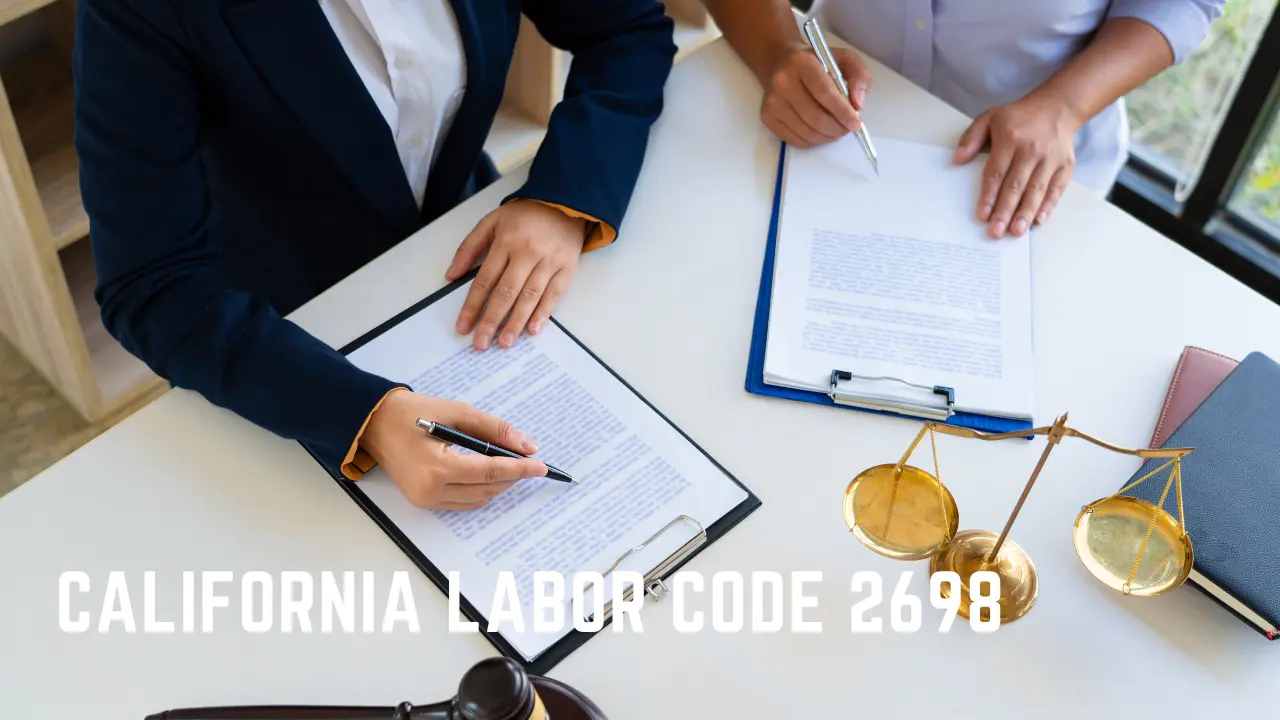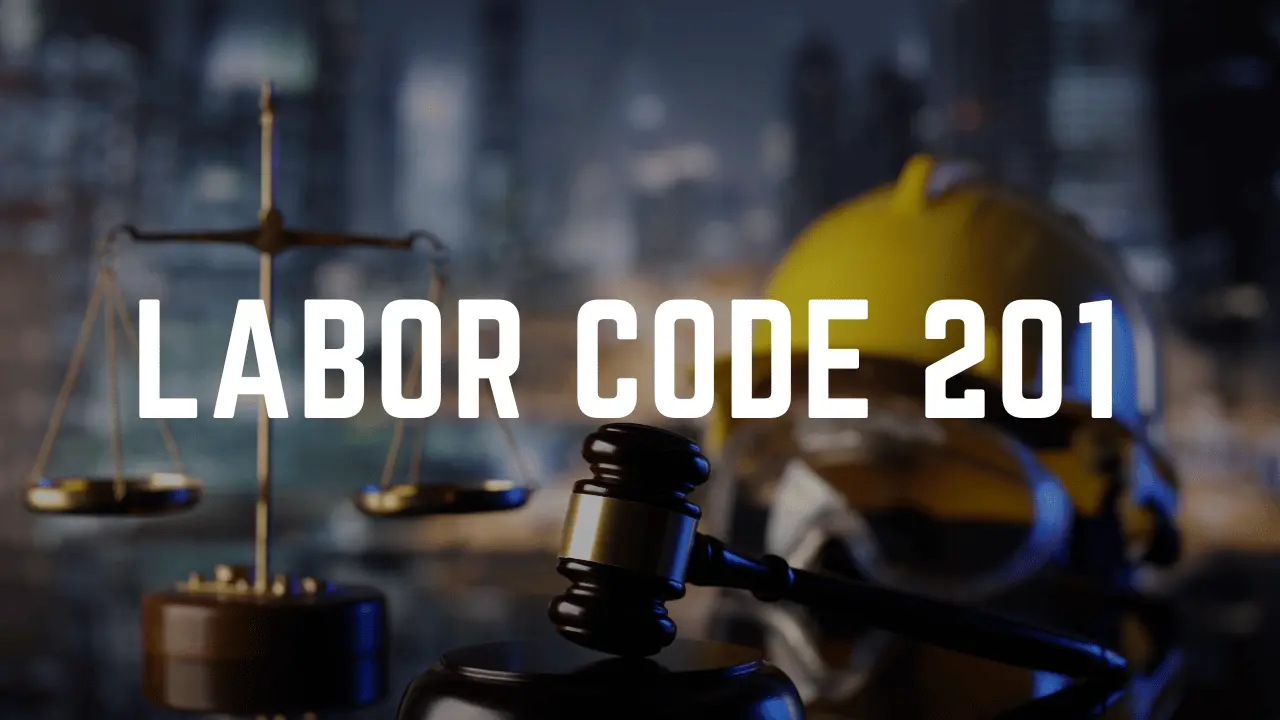Table of Contents
ToggleOne such law, the California Labor Code 210, has specific provisions that impose penalties on employers who do not adhere to appropriate wage payment practices. The implications of this law, both for employers and employees, are far-reaching and demand a nuanced understanding of its provisions, obligations, and recovery procedures.
As we explore the depth of the California Labor Code 210, we will also consider its relationship with other legal frameworks and enforcement procedures, which should provide a comprehensive understanding of its role in securing employee rights.
Understanding California Labor Code 210
California Labor Code 210, with its intricate mechanisms and penalties, serves as a crucial safeguard in the state’s labor law landscape, ensuring that employers fulfill their obligations to pay wages promptly and appropriately.
This legal provision mandates that employers who fail to meet their wage obligations are liable to pay a penalty of $100 for an initial violation. For subsequent or intentional violations, the penalty escalates to $200 plus 25% of the amount unlawfully withheld.
Employees are entitled to seek these penalties either directly from their employer or through the Labor Commissioner. However, this approach bars the simultaneous pursuit of penalties under the Private Attorneys General Act (PAGA).
This system reinforces timely wage payment and discourages willful or repeated breaches.
Employer Obligations Under LC 210
Under the purview of Labor Code 210, employers in California are legally obligated to adhere to strict wage payment schedules, ensuring their employees receive full compensation in a timely manner to avoid potential penalties. Any failure to comply with these regulations can result in significant financial penalties.
The initial violation attracts a $100 fine, with subsequent or intentional violations resulting in a $200 penalty plus 25% of the unpaid wages. Employers are therefore advised to maintain accurate payroll records and ensure wages are paid on the scheduled payday.
Employees have the right to recoup penalties either directly from the employer or through the Labor Commissioner, making adherence to LC 210 a critical business obligation.
How Employees Recover Penalties
In the event of a violation of Labor Code 210, employees have specific avenues to recover penalties either directly from their employer or through the Labor Commissioner’s office. Employees can file a claim directly with their employer, and if this does not lead to resolution, they can escalate the claim to the Labor Commissioner.
This governmental office will then conduct an investigation into the claim, and if found valid, will enforce the penalties against the employer. In order for the process to commence, employees need to provide supporting documentation such as pay stubs and time records.
It’s important to note that penalties under Labor Code 210 are separate and distinct from any damages recovered in wage and hour lawsuits.
Financial Implications of LC 210
While the recovery process for penalties under Labor Code 210 has been clearly outlined, it is equally critical to examine the financial implications this statute has on both employers and employees.
For employers, non-compliance may result in substantial monetary penalties, creating a significant financial burden. Repeated or willful violations could further amplify these costs.
For employees, unpaid wages not only disrupt their financial stability but can also lead to psychological stress. However, LC 210 provides a financial remedy through its penalty provisions. Employees can recover $100 for initial violations and $200 plus 25% of unpaid wages for subsequent or intentional violations.
Thus, LC 210 serves both as a deterrent against wage violations and a financial compensation mechanism for affected employees.
Related Legal Provisions and Cases
To fully comprehend the context and implications of LC 210, it is essential to examine other related legal provisions and notable legal cases that have shaped its interpretation and enforcement.
- Related Legal Provisions
- The California Labor Code complements LC 210 with Waiting Time Penalties, imposing further fines for unpaid wages post-termination.
- Assembly Bill 673, enacted in 2019, also addresses penalties for delayed wage payment.
- Notable Legal Cases
- Amaral v. Cintas Corp. No. 2 and Sampson v. Parking Service 2000 Com., Inc. are significant cases, setting precedents for LC 210 enforcement.
These legal provisions and cases create a comprehensive framework to enforce timely wage payment, deterring employers from late wage payment and protecting employees’ rights to prompt remuneration.
Enforcement Procedures for LC 210
Building on the legal framework established by LC 210 and related provisions, it is imperative to scrutinize the specific enforcement procedures that ensure compliance with this section of the California Labor Code. The Labor Commissioner’s Office remains vigilant, enforcing these laws by investigating complaints and assessing penalties.
Employees wronged can file a wage claim or report a labor law violation. If pursued through the Labor Commissioner, penalties imposed under LC 210 are retained by the state. Alternatively, employees can seek penalties directly from the employer, proving financially beneficial.
It is also worth noting that pursuing penalties under LC 210 precludes simultaneous pursuit under the Private Attorneys General Act. Thus, strategic legal decisions become critical in maximizing potential recoveries.
LC 210 and Other Labor Code Penalties
In the broad tapestry of the California Labor Code, Section 210 and its penalties for late wage payments exist alongside a variety of other penalties and provisions designed to enforce fair labor practices. These include but are not limited to:
- Waiting Time Penalties under Section 203, punishing employers who withhold wages post-termination or resignation.
- Meal and Rest Break Penalties under Section 226.7, levied for denying mandated breaks.
Each section operates independently and concurrently, providing multiple avenues for employees to seek relief. However, penalties under LC 210 and the Private Attorneys General Act (PAGA) are mutually exclusive, compelling strategic decision-making by employees. Thus, understanding the interplay between LC 210 and other Labor Code penalties is crucial for both employers and employees.
Summary of LC 210 Implications
Given the provisions under California Labor Code 210, it is evident that employers bear significant financial responsibilities and potential penalties for failing to comply with timely wage payments. The implications of LC 210 are substantial, underscoring the importance of strict adherence to wage payment schedules.
Penalties escalate for repeated or intentional violations, signaling a strong deterrent for non-compliant employers. Moreover, the fact that employees can pursue penalties directly or through the Labor Commissioner broadens their avenues for redress while potentially speeding up the recovery process.
However, a strategic decision must be made as pursuing LC 210 penalties precludes simultaneous pursuit under the Private Attorneys General Act (PAGA). Overall, LC 210 is a powerful tool for enforcing timely wage payments and protecting employee rights.
Conclusion
In conclusion, California Labor Code 210 serves as a pivotal legal framework safeguarding timely wage payments to employees. The statute imposes penalties on employers for initial and intentional violations, while providing a recovery mechanism for employees. It is imperative for employers to adhere to these obligations to avoid financial implications.
The enforcement procedures and related legal provisions further strengthen the act. Yet, its relationship with other Labor Code penalties underscores the complexity of labor law compliance.
















